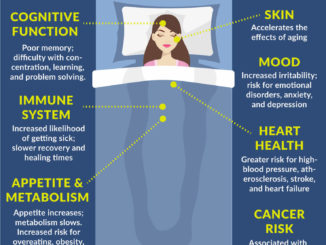
Do you have trouble sleeping? Are you lying awake at night staring at your ceiling waiting for sleep to come? Or do you wake up during the night and anxiously await going back to sleep? If you suffer from insomnia, you know how hard it can be to get through your day with only a few hours of sleep. It’s hard to concentrate on classes and homework. How frustrating!
But there are some tips you can try to curb your insomnia and get the sleep you need.
1. Keep a steady schedule. Go to bed and get up at the same time every day. I know this is hard to do on weekends. You would rather sleep in than get up early. But if your body gets used to going to sleep and getting up at particular hours, it will help you get the shut-eye you need.
2. Create a sanctuary in your room. Make sure the temperature isn’t too hot or cold, that lights are turned off (this includes the TV), and that the only noises are white noises (such as your fan or a wave machine).
3. Create a bedtime ritual that tells your brain it’s time to sleep. Take a shower, brush your teeth, turn on your wave machine or fan, arrange your pillows, and snuggle under the covers. You can add any other rituals that will help you know it’s time to go to sleep.
4. Don’t read. I know it’s easy to snuggle under the covers with a good book, but at bedtime, reading won’t help you relax. It will keep your mind active, and possibly keep you up late if you can’t put the book down.
5. Do yoga or a similar relaxing exercise before bed. Make sure it involves stretching your muscles and deep breathing.
6. Eat a snack that is high in carbs, such as pretzels, cereal, or graham crackers. Carbs help you feel sleepy. They also help warm you up, which is great for cold nights.
7. Don’t drink too many liquids before bed. Too much can cause you to wake up during the night to use the bathroom.
8. Stop drinking caffeinated drinks four to six hours before you go to bed. Caffeine is a stimulant, and can keep you up late into the night. You should also avoid any foods with caffeine, such as chocolates, and make sure any medications you take don’t have caffeine in them.
Hopefully, these tips will help you sleep better at night. Try them for a few weeks to see how they work. If you’re still having trouble sleeping, you may want to talk to your doctor.
Proudly WWW.PONIREVO.COM



